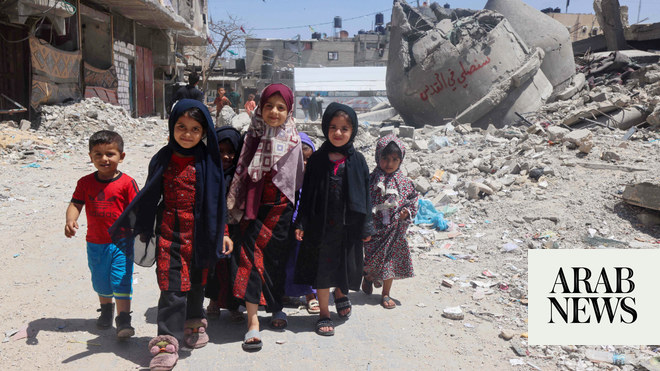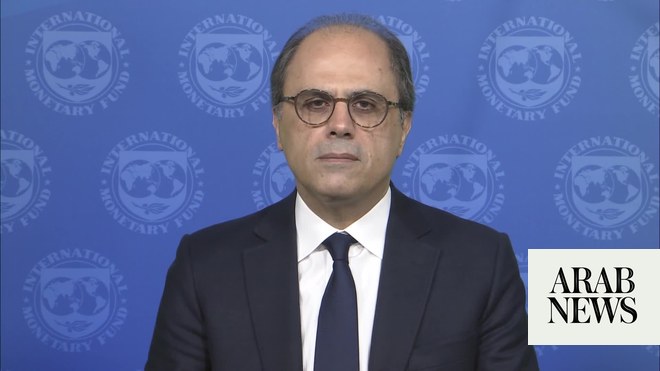
IMF lowers its predicted growth for the Middle East and Central Asia to 2.1 percent for 2024
IMF forecasts for Lebanon, where conflict with Israel has sharply escalated this month, have been suspended
DUBAI: Gaza, Lebanon and Sudan will take decades to recover from the conflicts raging on their soil, the International Monetary Fund said on Thursday after downgrading the region’s growth forecast.
Israel’s military actions against Hamas in the Gaza Strip and Hezbollah in Lebanon, and Sudan’s civil war would have enduring impacts, the IMF said.
“The damage caused by these conflicts will leave lasting scars at their epicenters for decades,” the global lender said in a statement.
The IMF has lowered its predicted growth for the Middle East and Central Asia to 2.1 percent for 2024, a drop of 0.6 percent due to the wars and lower oil production.
Depending on the conflicts, growth should rise to 4.0 percent next year, according to the IMF’s Regional Economic Outlook which was compiled in September.
“This year has been challenging with conflicts causing devastating human suffering and lasting economic damage,” Jihad Azour, the IMF’s Middle East and Central Asia Department director, told reporters in Dubai.
“The recent escalation in Lebanon has greatly increased the uncertainty in the whole MENA region.”
IMF forecasts for Lebanon, where conflict with Israel has sharply escalated this month, have been suspended. But “conservative” estimates show a 9.0-10 percent contraction this year, Azour said.
“The impact (on Lebanon) will be severe and it will depend how long this conflict will last,” said the former Lebanese finance minister.
Saudi-led oil cuts through the OPEC+ group, aimed at propping up prices, “are contributing to sluggish near-term growth in many economies,” the IMF said.
For the region’s oil exporters, “medium-term growth is projected to moderate, as economic diversification reforms will take time to yield results,” it added.
Downside risks continue to dominate, the lender said, including fluctuating commodity prices, conflicts and climate shocks.












